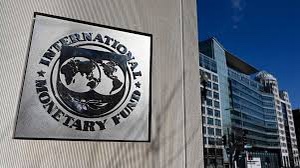The Executive Board of the International Monetary Fund (IMF) on Monday approved a 38-month arrangement under the Extended Credit Facility (ECF) for Burundi with access of 130 percent of quota, about $271 million.
The decision allows an immediate disbursement of about $62.6 million, according to the IMF the arrangement will help Burundi address its protracted balance of payments needs, reduce debt vulnerabilities, and cope with the effects of recent domestic and external shocks.
“Burundi has recently been hit by several shocks. Spillovers from Russia’s war in Ukraine have triggered commodity price increases, which led to heightened domestic inflation pressures and slowed the post COVID-19 growth recovery. Domestic shocks, including unfavorable weather conditions and an animal sanitary crisis, have hampered primary sector prospects and living conditions,” said Kenji Okamura IMF Deputy Managing Director, and Acting Chair.
Burundi’s post-COVID-19 economic recovery has slowed down, although still healthy according to the IMF. Spillovers of the war in Ukraine have triggered sharp increases in commodity prices and domestic inflationary pressures. Domestic shocks, including delayed rainfall, limited availability of fertilizer, and outbreaks of livestock fevers have impacted Burundi’s primary sector.
According to the IMF the External imbalances of Burundi have heightened, with a widening current account deficit, low foreign exchange reserves, and a still large parallel foreign exchange (FX) market premium. Higher spending needs, including on fertilizers, social programs, and vaccines have deteriorated the fiscal path and raised fiscal financing needs.
The ECF arrangement will cushion Burundi’s policy recalibration and economic adjustment, while supporting the authorities’ policy agenda. Key commitments include a better-quality fiscal consolidation path achieved through higher revenue, scaled-up investment, and prudent borrowing while protecting priority social spending; unification of the official and parallel exchange rate markets and foreign exchange market liberalization to restore external sustainability; tightened monetary policy in support of the ongoing unification and to rein in inflation, while modernizing the monetary policy framework and fostering financial sector stability; and undertaking further governance and structural reforms to ensure an environment conducive to inclusive growth and job creation.
Burundi faces important macroeconomic challenges, including persistently high inflation, external imbalances with a widening current account deficit and inadequate foreign exchange reserve coverage, and large fiscal needs and public debt.
To address these challenges the IMF said that the Burundian authorities have requested a 38-month arrangement under the Extended Credit Facility (ECF). The arrangement would help address the country’s protracted balance of payments needs, rebuild external buffers, reduce public debt vulnerabilities, and support the implementation of the authorities’ reform agenda. This is Burundi’s first Upper Credit Tranche-quality arrangement with the IMF since 2016.
The arrangement is expected to catalyze donor funding, which is essential to cater to Burundi’s large financing needs and support its exit from fragility.
The repayment process is a grace period of 5½ years, and a final maturity of 10 years.

